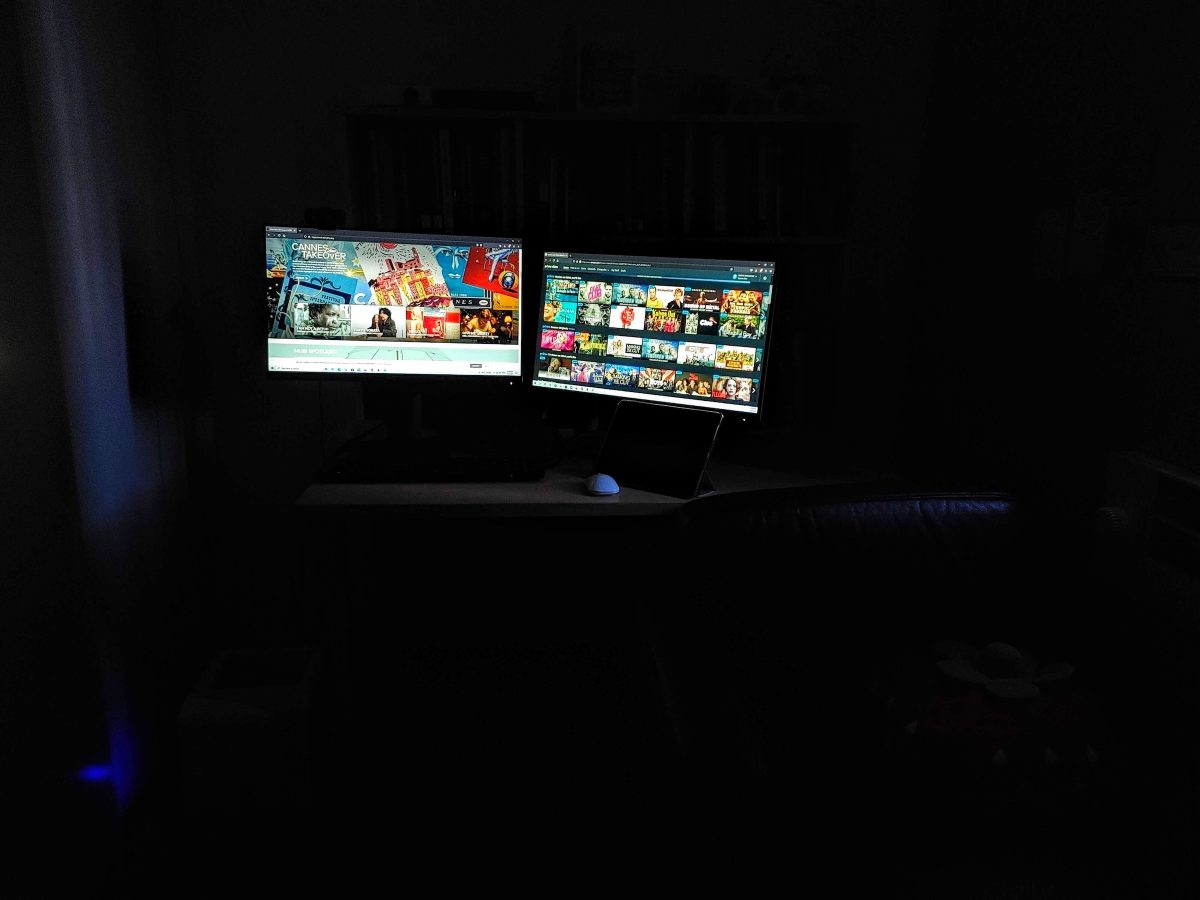
As we ease out of the pandemic in the United States, the future of film festivals remains in question. Should they stay online? Or should they return to 100% in-person action? Some have opted for the middle ground. “Hybrid” festivals are becoming an increasingly popular format across the board, since they allow for flexibility on all ends. Press can watch screeners at their leisure; directors only need to record their Q&As; audiences can still flock to cinemas. Hybrid festivals provide a safer, softer alternative to the usual grit and chaos that a completely in-person festival details, while serving some sense of festivities to a completely online roster. In a word, they are the new frontier of festival accessibility.
I’m concerned, however, that we might be splitting the body and soul of the film festival into one part film, one part festival. The “film festival” as a whole, after all, depends upon the atmosphere. The film festival is memorable for running on the sheer magic of coincidence: falling for an acquaintance at a Bavarian beer and cheese party; meeting a future composer for your project; meeting your remote editor-in-chief for the first time over a plate of Korean BBQ. It’s about the encounter, about 100% being there, about running into who knows when and where and why, but it certainly would not have happened if you both weren’t on the ground. In addition to the movies, the film festival relies upon — cheesily enough — the people you meet by chance.
In truth, I probably would not be where I am today were it not for the inherent mélange (or “hybridity,” if you will) that is film festival culture. The festival world greeted me with open arms. After a whirlwind summer from Cannes to Seoul (in the same year that Parasite won the Palme d’Or, no less), I’ve been lucky enough to meet people from all over: fledgling directors, studio distributors, seasoned press, passionate archivists, and more. All of this was only possible through the film festival as a whole. The air of serendipity, for me, gives way to an utopian sense of equality, where everyone can mingle. This is, after all, the lure of the film industry or the American dream epitomized: Anyone can make it big.
“Hybrid” film festivals, however, complicate this relationship. Virtual festivals raised the gold standard because we were all stuck at home. What happens when we get back to the old dilemma then, where some can go to the in-person festival and others cannot? What happens when everyone is watching the same film — but some are not in the crowd? What happens when we lose our sense of time, of our community, and — most importantly — of our shared space together?

I worry about this. There’s just not enough chance to rub shoulders with others beyond your social circle in the virtual realm — not when every meeting with a stranger is a preplanned Zoom conversation; not when all your email conversations are mediated by a press agency; and certainly not when you can’t even stand in line for a screening (or for free samples). As long as hybrid festivals can organize what goes on, they can also organize who comes along — though this time with a reformative note. Hybrid systems can easily placate amateur critics and casual viewers with online content, while sieving them out from industry insiders. If hybrid festivals continue the way they do, the in-person experience will be held at a premium while the online content is given to the masses. And the masses — content with their content — will not know what they’ve missed.
I realize that yes, there will always be dedicated attendees. There will always be people who loyally visit their local film festival because of their many years together. There will always be excited cinephiles who will delight in velvety rouge seats and the flickering of the projector. There will always be curious spectators who, upon finding a festival in town, will find their way into the cinema one way or another.
Nonetheless, we should be careful with our words. Instead of heralding virtual platforms as a mode of access to the film festival, we should acknowledge that they’re access to only the films. Instead we should campaign for more accessible “festivals” — for affordable tickets, for example, or cheaper on-site lodging. Or perhaps we should campaign for more cohesive community spaces online. We should explore options that could simulate, if not entirely replicate the art of the random encounter. After all, watching good cinema is as much of a luxury as it has always been. Watching it beside others, though … now that is a privilege worth fighting for.
0 Commentaires